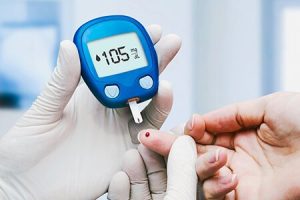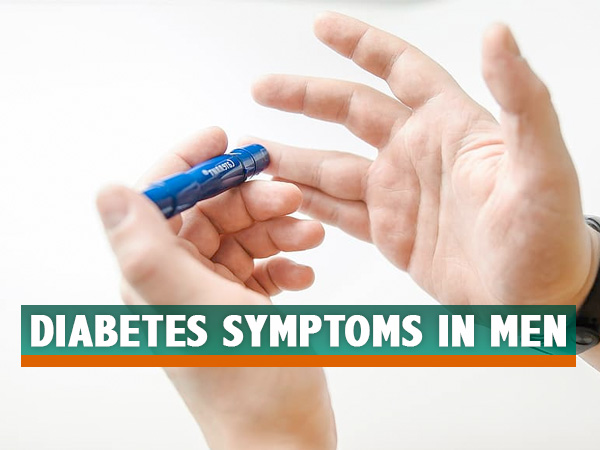
Symptoms of Diabetes in Men: A Comprehensive Overview
Diabetes is a chronic health condition that occurs when the body is unable to properly regulate blood sugar (glucose) levels. There are two primary types of diabetes: Type 1 diabetes and Type 2 diabetes, with the latter being more common. While the symptoms of diabetes can vary based on the type and individual health, certain signs are more commonly experienced by men.
Early detection of diabetes is crucial for effective management, as untreated or poorly controlled diabetes can lead to severe complications like heart disease, kidney failure, nerve damage, and blindness. Below is an in-depth exploration of the common symptoms of diabetes in men, highlighting both general and gender-specific signs that may indicate the onset or worsening of the disease.
Symptoms of Diabetes
1. Increased Thirst and Frequent Urination
Why it Happens:
- High blood sugar levels (hyperglycemia) cause the kidneys to work harder to filter and absorb the excess glucose. When the kidneys become overwhelmed, they start to excrete the excess glucose into the urine, leading to frequent urination. This process causes dehydration, which triggers a strong feeling of thirst (polydipsia).
How it Affects Men:
- Men with diabetes may experience increased thirst, especially at night, and may notice frequent trips to the bathroom, often resulting in disrupted sleep.
2. Fatigue and Weakness
Why it Happens:
- The body’s inability to properly use or store glucose (due to insulin resistance or lack of insulin in Type 1 diabetes) means that cells don’t receive the energy they need. This leads to feelings of extreme fatigue or tiredness, even after a full night’s rest.
How it Affects Men:
- Men may feel unusually tired or weak, even after activities that would not typically cause exhaustion. This fatigue can impact daily tasks, work performance, and overall quality of life.
3. Unexplained Weight Loss or Weight Gain
Why it Happens:
- In Type 1 diabetes, the body’s inability to produce insulin causes it to break down muscle and fat for energy, leading to rapid weight loss. In Type 2 diabetes, insulin resistance can lead to weight gain, particularly around the abdominal area. Additionally, the increased thirst and frequent urination can result in water loss, contributing to weight fluctuations.

How it Affects Men:
- Men with diabetes may notice they are losing weight despite normal or increased eating, which could be a sign of uncontrolled blood sugar levels. Alternatively, men with Type 2 diabetes may experience difficulty losing weight, as insulin resistance promotes fat storage.
4. Blurred Vision
Why it Happens:
- High blood glucose levels can lead to swelling in the lens of the eye, affecting the ability to focus properly. Over time, this can result in blurred vision. Diabetes is also a risk factor for more serious eye conditions such as diabetic retinopathy, cataracts, and glaucoma.
How it Affects Men:
- Men may notice difficulty reading, seeing in low light, or blurry vision that comes and goes. If untreated, this symptom can worsen and lead to permanent vision loss.
5. Slow-Healing Sores or Frequent Infections
Why it Happens:
- High blood sugar impairs the body’s ability to heal wounds and fight infections. Additionally, diabetes weakens the immune system, making the body more susceptible to infections, including those affecting the skin, gums, and urinary tract.
How it Affects Men:
- Men may notice that small cuts or abrasions take longer than usual to heal. They might also experience recurring or persistent infections, such as skin infections, urinary tract infections (UTIs), or fungal infections.
6. Erectile Dysfunction (ED) and Reduced Libido
Why it Happens:
- Diabetes can cause damage to blood vessels and nerves, including those responsible for sexual function. High blood sugar levels can lead to poor circulation, making it harder for men to achieve or maintain an erection. Additionally, the hormonal imbalances associated with diabetes may contribute to a decrease in libido (sexual desire).
How it Affects Men:
- Erectile dysfunction is a common problem for men with diabetes, and it can occur early in the course of the disease, particularly in those with poor blood sugar control. The risk of ED increases over time, especially in Type 2 diabetes. Reduced libido may also be a sign of fluctuating hormone levels due to diabetes.
7. Numbness, Tingling, or Pain in Extremities (Neuropathy)
Why it Happens:
- Prolonged high blood sugar can damage the nerves throughout the body, a condition known as diabetic neuropathy. This can lead to sensations of numbness, tingling, or pain, particularly in the feet, hands, and legs.
How it Affects Men:
- Men may experience numbness or tingling in their feet or hands, which can become more pronounced over time. Pain or a “burning” sensation in the extremities is also a hallmark sign of neuropathy. This can interfere with walking, balance, and daily activities.
8. Increased Hunger (Polyphagia)
Why it Happens:
- In diabetes, especially when blood sugar is poorly controlled, the body’s cells are not receiving the glucose they need for energy. This triggers an increase in appetite, as the body tries to get more energy from food. However, eating more often does not alleviate the issue, as glucose remains inadequately processed.
How it Affects Men:
- Men with diabetes may feel excessively hungry, even after eating meals. This constant urge to eat, combined with weight changes, can be a clue that blood sugar levels are out of balance.
9. Skin Changes
Why it Happens:
- Diabetes can cause changes to the skin’s appearance due to poor circulation, dryness, and high blood sugar. Men with diabetes may notice darkened patches of skin, especially around the neck, armpits, and groin (a condition known as Acanthosis nigricans), which is often associated with insulin resistance. Additionally, dry and itchy skin can occur due to dehydration.
How it Affects Men:
- Men may notice that their skin becomes more prone to irritation, dryness, or infections. These skin changes may be a sign of uncontrolled blood sugar levels or an indication of developing complications.
10. Breath that Smells Fruity or Like Acetone
Why it Happens:
- When the body cannot use glucose for energy due to insufficient insulin or insulin resistance, it begins to break down fat for fuel, producing ketones as a byproduct. If ketones accumulate to high levels in the blood, they can cause a distinct fruity or acetone-like smell on the breath, which can be a sign of diabetic ketoacidosis (DKA), a serious and potentially life-threatening complication.

How it Affects Men:
- A fruity or sweet-smelling breath may indicate a medical emergency, particularly in men with Type 1 diabetes. This is a warning sign of DKA, which requires immediate medical attention.
11. Mood Swings or Irritability
Why it Happens:
- Fluctuations in blood sugar levels can have a direct impact on mood and mental well-being. Low blood sugar (hypoglycemia) can lead to irritability, anxiety, or confusion, while high blood sugar (hyperglycemia) can also affect concentration and mood stability.
How it Affects Men:
- Men with diabetes may experience mood swings, irritability, or feelings of depression, especially when their blood sugar levels are out of balance. Over time, the stress of managing the condition may contribute to mental health issues such as anxiety and depression.
12. Increased Risk of Heart Disease
Why it Happens:
- Diabetes significantly increases the risk of cardiovascular diseases, including coronary artery disease, heart attacks, and strokes. High blood sugar levels contribute to the buildup of fatty deposits in the blood vessels, leading to atherosclerosis (hardening of the arteries).

How it Affects Men:
- Men with diabetes are at an increased risk of heart disease. Symptoms such as chest pain, shortness of breath, or pain in the arms, neck, or jaw should be taken seriously and may indicate an underlying cardiovascular problem.
Conclusion
Diabetes in men can manifest through a range of symptoms, both general and gender-specific. Early recognition of these signs is critical to managing the disease and preventing complications. Symptoms like increased thirst, fatigue, frequent urination, and erectile dysfunction may be some of the first indicators that something is wrong with blood sugar regulation. Men with diabetes should be vigilant about monitoring these symptoms, and seek medical advice if they notice changes in their health.
If you suspect you have diabetes or are experiencing these symptoms, it is important to consult a healthcare professional for proper diagnosis and treatment. Managing diabetes through a balanced diet, regular exercise, and medication can help control blood sugar levels and improve quality of life.



 DailyMediCure
DailyMediCure 










